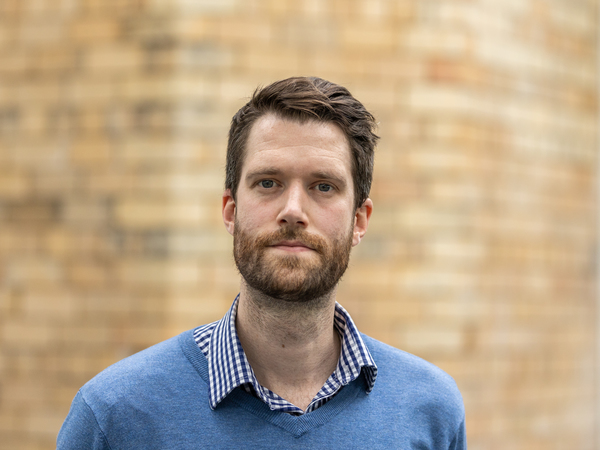Deep concerns following the COP29 outcome
5 December 2024

This article written by Ben Wilson, SCIAF's Director of Public Engagement, first appeared in The Flourish newspaper
The COP29 climate conference drew to a close in the early hours of Sunday morning in Baku, Azerbaijan.
Three years on since the world came to Glasgow to try to renew a deal to save the planet, at COP29 world leaders met to discuss a deal for the cash to fund climate action. Unfortunately, the deal reached has been widely criticised as inadequate by the poorest countries in the world. SCIAF is now deeply concerned about what this deal means for the people we support.
Some people I know wonder why SCIAF is so concerned about climate change. For many people, climate change has more to do with recycling, polar bears or trees and birds than it does to do with serving the poorest people overseas. However, the reality is that climate change is now the number one threat facing the communities that SCIAF serves. Climate change is hurting the poorest people in the world already, and it’s only going to get worse unless something is done and done quickly.
At SCIAF, we are deeply passionate about providing long-term solutions to global poverty and injustice. We believe in giving a hand-up, not a hand-out; in teaching people to fish rather than giving them fish to eat, so to speak. In recent years, we’ve had to contend with the challenge that the river no longer has fish for people to catch – because it’s warmed due to climate change. People no longer are safe to live by that river, because it bursts its banks every year now, flooding their homes. Their homes aren’t secure either, as climate change is bringing increasingly devastating cyclones, which blow the roofs off, and folks don’t have enough money to repair them.
Therefore, we at SCIAF believe it’s vital that we help advocate on behalf of these communities to call on the powerful to do all they can to tackle the climate emergency.
At COP29, I attended on behalf of SCIAF as an official observer of the talks. Working together with Caritas colleagues from Caritas USA, Australia, Zambia, Malawi and Brazil, we followed the negotiations and put forward our case to our leaders there on the deal that we hoped COP29 would achieve. We worked closely with the Vatican’s delegation too, who were part of the negotiations in Baku, bringing Pope’s Francis’ message which had been delivered by Cardinal Parolin at the beginning of the conference.
Through our partners, SCIAF has deep understanding and first-hand experience in how to address climate impacts with communities. Thanks to the generosity of our supporters, we have expertise and understanding of the types of things that can be done to help people to weather the storms of climate change, to endure flooding and cyclones, and build back better from disasters. We took these case studies to negotiators at COP29, trying to help make the case for why the conference needed to agree a deal that worked for the world’s poorest people.
COP29 drew to a close and many countries were left disappointed. The world’s poorest countries had arrived in Baku pleading for $1.3tr package to help them grow greener countries, adapt to and recover from the impacts of climate change. Unfortunately, the deal reached was only for $300bn by 2035, far short of what is needed, and crucially mostly made up of loans rather than grants.
In many of the countries SCIAF works in, governments are burdened with huge national debt, some paying more on interest payments to big banks than they are for their own health and education services. Therefore, the deal reached at COP29 might spell more debt crisis for the poorest countries, something that will have a terrible human impact.
In these dark days, when we see increasing conflict around us and the breakdown of international co-operation, it can be hard to remain hopeful. However, if there is anything that is keeping me optimistic it is the determination of the youth of the world that was on display at COP29. I was proud to attend COP alongside young people from Malawi, from Zambia, from Rwanda, Latin America and the Pacific, all of whom had a deep passion for combating the climate crisis and building a better world for the future. Our generation has a duty not to fail future, unborn generations from whom we are only borrowing the earth.
As we look forward to COP30 in Brazil next year, I hope our leaders remember that the world is watching them, and that young people across the world are counting on them to deliver.

Yet again, COP has failed our sisters and brothers living in the world's poorest places. The conference has been deemed a shambles.

So many people in Valencia have lost their homes and possessions and for the very unlucky ones, family members, friends and loved ones.

SCIAF Director of Public Engagement, Ben Wilson, writes in the Herald about whether politicians are taking the wrong path on net zero.
Back to